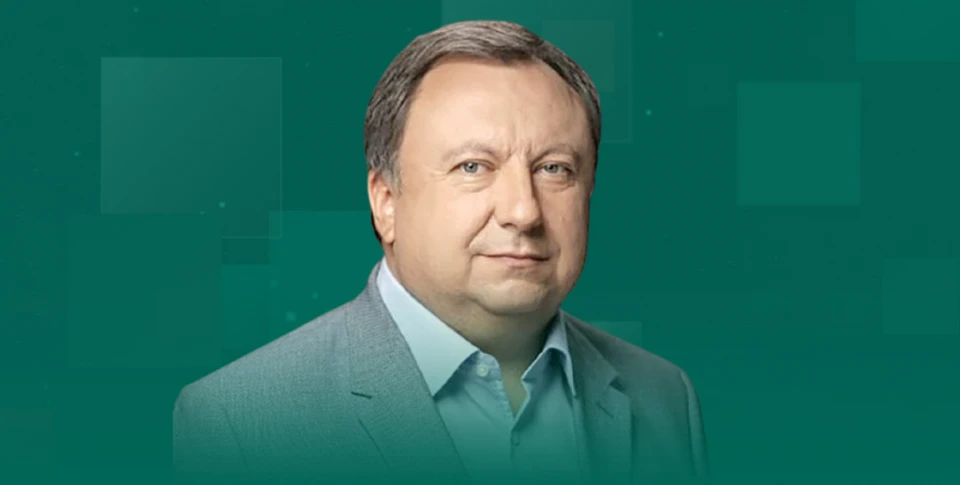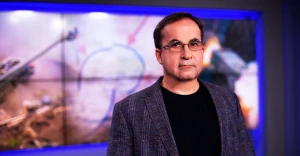
Taiwan's lessons: how Ukraine can avoid losing war
For Taiwan, Ukraine's victory means their security, because the world cannot withstand several centers of tension. And if Ukraine falls, Taiwan will obviously be the next to be attacked. China has repeatedly said this
Today is National Day in Taiwan. I have just returned from there. I had meetings with the president, the head of the Foreign Affairs Ministry, leaders of parliamentary factions, Ukrainians living in Taiwan, and many others who genuinely want to help Ukraine.
The history of Taiwan is extremely instructive for us.
Why did Taiwan, once a member of the UN and even one of its founders, lose its position there at some point? The People's Republic of China (PRC) stepped in, Chinese communists, and Taiwan is still fighting for its independence and international recognition.
This fantastic country produces almost the most chips in the world, and it is ready to be defended by the U.S., Japan, Europe, and other democratic countries. But why do these countries not open Taiwanese embassies? Why have they recognized the One China policy, and what does this One China policy really mean? Does it imply that Taiwan has no right to exist?
Taiwan stands with Ukraine, but is Ukraine with China?
It is clear that Taiwan supports Ukraine and provides substantial financial aid to the country. They have allocated tens of millions of dollars in their budget for this purpose, and many Taiwanese voluntarily donate humanitarian aid to Ukrainian hospitals, schools, and kindergartens. Privately, it is obvious that some of this aid also reaches the Ukrainian armed forces. One Taiwanese soldier heroically died fighting for Ukraine, and others continue to defend the country.
Taiwan is truly a democratic country that wants to build a common future with Ukraine. However, Ukraine seems unwilling. This reluctance stems from fear of China. For a long time, many Ukrainians had commercial, and consequently corrupt, ties with the Chinese. We remember how former president Yanukovych sought to attract Chinese money and even considered selling Ukrainian land to the Chinese to avoid making commitments to the EU regarding democratization and developing our country along a European path. Money had to come from somewhere.
To this day, China appears to many of our leaders as a source of easy money that does not require any democratization, because China itself is not democratic. When Foreign Minister Kuleba went to China and invited the Chinese to participate in Ukraine’s reconstruction, it shocked not only the Taiwanese but also many of our democratic allies—Americans and Europeans—because everyone understands well that China is an ally of Russia. Some even believe that Russia is essentially a proxy for China. According to Western media, Russians receive Chinese weapons and other forms of Chinese support.
China’s market has become one of the main ones for Russia, essentially keeping Russia afloat, just as it does for North Korea. Recently, there was a meeting between the leaders of China and North Korea, where China once again affirmed its productive cooperation with them. North Korea is a country whose weapons are being used by Russian forces to kill Ukrainians. In short, an authoritarian bloc has formed—China, Russia, Iran, and North Korea—that seeks to destroy the democratic world, redraw borders, and control all natural resources, sensing the weakness of many democratic nations.
Desire to engage with authoritarian regimes threatens Ukraine's defense
Democracy is not only the strongest form of government but also the most vulnerable. This vulnerability is precisely why far-right parties, supported by Russia and other anti-democratic countries, are gaining ground in Europe.
Our unwillingness to cooperate with Taiwan is a very bad signal to the U.S., which considers Taiwan one of its greatest allies for European countries. It shows that we do not understand the concept of solidarity among democratic nations and why we must support democracy.
We can win this war through several factors, one of which is, undoubtedly, Western funds and Western weapons. The West will continue to provide us with money and arms largely because they are convinced that we are standing up for and defending democracy. But if we are defending democracy, then democratic countries must be our closest allies. We do not need to flirt with totalitarian countries, thinking that they will change their plans and reduce support for Russia because of us. They don't even notice us. Strategically, they don't need us. Strategically, in their authoritarian bloc, they need Russia. Therefore, they will always support Russia. On the other hand, it would be easy for us to lose Western support.
Our desire to engage with authoritarian regimes and reluctance to engage with democracies like Taiwan clearly poses a huge threat to our defense. Besides, we should simply be grateful to Taiwan for the assistance they are providing us today. Their influence, for example, on U.S. decisions, is extremely significant. Remember that the U.S. has provided support to three countries—Taiwan, Israel, and Ukraine. Ukraine received the least support in the U.S. Congress, while Taiwan received the most. Their officials openly tell me: “Do you really think Americans don’t ask us, as their closest allies, whether they should continue supporting Ukraine?” They do ask. But what can the Taiwanese say about supporting a country that invites their greatest enemy—China—to participate in its reconstruction?
What is the One China policy and why was Taiwan excluded from the UN?
What does the One China policy mean? The One China policy means that only one Chinese state is represented in the UN. This does not mean that Taiwan does not have the right to be an independent state. Of course, it has that right; it has the right to exist. It does not mean that China has the right to attack Taiwan and destroy it. That is why Taiwan is supported in the democratic world.
In Taiwan, the streets are safe, courts function, there is fair competition, and you are treated like a welcomed guest—it's much more pleasant to be there than in any, even the richest, totalitarian country in the East.
But why is Taiwan in a situation where only a few countries still have Taiwanese embassies? Why was Taiwan excluded from the UN?
We rarely think about this. But what happened, happened. Obviously, Taiwan is the Republic of China, and Taiwan was founded by China. More precisely, by the people who built it, including the then-leader of the Chinese, Chiang Kai-shek. In the civil war, he lost to the communist Mao Zedong, retreated to the island of Taiwan, and built a state there. This state became a major ally of the United States. But why was this island excluded from the UN? Of course, there are economic reasons. It is small, and the communists controlled almost all of mainland China. Many were interested in cooperating with them. But how did it happen that democratic countries voted for the representation of the Chinese people in the UN to be the communist China? How did it happen that Americans and many other European countries voted for the communists?
The answer is quite simple: Chiang Kai-shek retained control over the island of Taiwan, where he began to build a pro-American state, but he had no intention of building a democratic state. In fact, until the late 1980s and early 1990s, there was no democracy at all. And in 1971, when Taiwan was excluded from the UN, democratic states did not support it sufficiently because it was an authoritarian state: enemies of the regime were imprisoned, freedom of speech was restricted, martial law lasted for over 40 years, and no elections were held. Does this remind you of anything?
Taiwan's lessons for Ukraine
In Ukraine, there is war, we cannot hold elections, and we are objectively continuing the state of emergency. In Taiwan, they extended it even when there were no military actions, simply because the authorities liked it. However, the issue is not just about elections during a state of emergency. Just like in our country, freedom of speech was restricted there as well. Today, we do not have political prisoners like they did there. But when democracy is limited and uncontrolled, it is only a small step away from the emergence of political prisoners. In that case, Ukraine would truly disappear from the map. There is a small chance that, so to speak, the Russian aggressor will not advance into Galicia, and someone there will defend a small "Ukrainian Taiwan." But that is certainly not the scenario we need. We need a scenario of close cooperation with all democratic countries, victory over the Russian aggressor, and the restoration of our territorial integrity as of 1991. None of this is possible without Western support.
This support will only be possible if we do not repeat Taiwan's mistakes and instead serve as an example of democracy. We should not boast, as our leaders currently do, about a censored, government-controlled, inept telethon. We need to build a normal, strong democracy because that is the path to our victory. Everything they are saying leads to defeat. But they do not realize this. Each one lives quietly in their own ministry and does not consider what is happening now at the front, where there is a lack of weapons and people.
There are lessons that Taiwanese people must learn from us. These lessons are connected to our struggle for independence, our past, and our culture today. One of Taiwan's biggest problems in its confrontation with China is that young Taiwanese have essentially been glued to Chinese television and radio, similar to how we used to watch Russian channels (and many still do on YouTube or social media). Because of this, Taiwan relies heavily on its technological capabilities. They have good modern weapons, but they primarily rely on support from Western countries. Therefore, democracy is important to them, and they understand that building any cultural independence from China is extraordinarily difficult due to their shared language. While it differs, many say that Taiwanese is a large dialect of the Chinese language.
Taiwan has a complex history. It was once a colony of the Netherlands, Spain, and Japan, and it had indigenous peoples who naturally inhabited the island. Thus, the Taiwanese population is distinct from the Chinese. Besides the many Chinese living there, Taiwan is a mix of many peoples who were historically brought to the island or who lived there before the arrival of the Chinese. This identification is certainly absent in China.
There is no organization like Ukraine's Plast in Taiwan, although there are scouts, and they have just begun to develop and establish connections with Ukrainian scouts, including Plast. But this organization is not as strong or patriotic as ours. Our patriotism and our culture provide us with volunteers. People go to fight for this culture and this country. This is the problem Taiwan is currently facing. However, they have support from the U.S., which will fight for them, Japan, their own weapons, and many other strengths.
If we were truly a strong democracy, demonstrating effective governance, a clear pro-Western and pro-democratic course, not flirting with authoritarian regimes, and continuing to support culture as this year's budget has done, then the path to our victory would be much shorter. Instead, our authorities are leading us astray.
About the author. Mykola Kniazhytskyi, journalist, member of the Ukrainian parliament.
The editors don't always share the opinions expressed by the authors of blogs or columns.
- News











































